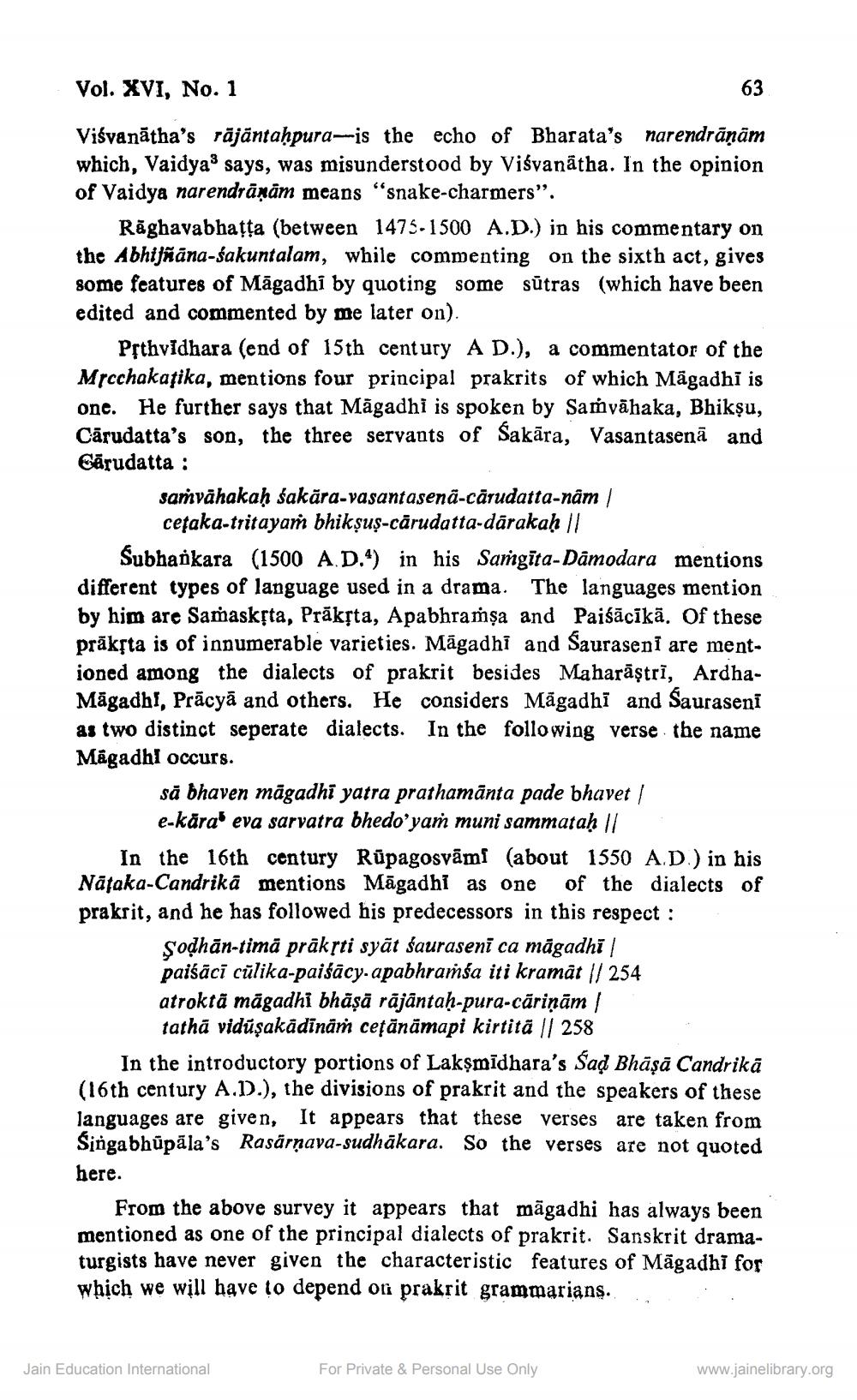________________
Vol. XVI, No. 1
63
Viśvanātha's rājāntaḥpura—is the echo of Bharata's narendrāņām which, Vaidya says, was misunderstood by Viśvanātha. In the opinion of Vaidya narendrānām means "snake-charmers”.
Rāghavabhatta (between 1475-1500 A.D.) in his commentary on the Abhijñāna-sakuntalam, while commenting on the sixth act, gives some features of Māgadhí by quoting some sūtras (which have been edited and commented by me later on).
Pythvidhara (end of 15th century AD.), a commentator of the Mrcchakafika, mentions four principal prakrits of which Māgadhi is one. He further says that Māgadhi is spoken by Samyāhaka, Bhikṣu, Cārudatta's son, the three servants of Sakāra, Vasantasenā and Sārudatta :
samvähakah sakāra-vasantasena-cārudatta-nam/
cetaka-tritayam bhikṣuş-cārudatta-dārakah // Subhankara (1500 A. D.4) in his Sangita-Damodara mentions different types of language used in a drama. The languages mention by him are Samasksta, Prāksta, Apabhramșa and Paiśācīkā. Of these prāksta is of innumerable varieties. Māgadhi and Sauraseni are mentioned among the dialects of prakrit besides Maharāştrī, ArdhaMāgadhi. Prācyā and others. He considers Māgadhi and Sauraseni as two distinct seperate dialects. In the following verse the name Mågadhl occurs.
sā bhaven māgadhi yatra prathamānta pade bhavet /
e-kära eva sarvatra bhedo'yaṁ muni sammataḥ || In the 16th century Rūpagosvāmi (about 1550 AD) in his Nataka-Candrikā mentions Māgadhi as one of the dialects of prakrit, and he has followed his predecessors in this respect :
Sodhān-timā prāksti syāt šauraseni ca māgadhi / paiśācī cūlika-paiśācy.apabhraṁsa iti kramåt // 254 atroktā māgadhi bhāşā rājāntah-pura-cāriņām /
tathā vidūşakādīnāṁ cetānāmapi kirtitā || 258 In the introductory portions of Lakşmīdhara's Sad Bhāṣā Candrikā (16th century A.D.), the divisions of prakrit and the speakers of these languages are given. It appears that these verses are taken from Singabhūpāla's Rasārņava-sudhākara. So the verses are not quoted here.
From the above survey it appears that māgadhi has always been mentioned as one of the principal dialects of prakrit. Sanskrit dramaturgists have never given the characteristic features of Māgadhi for which we will have to depend oni prakrit grammarians..
Jain Education International
For Private & Personal Use Only
www.jainelibrary.org




